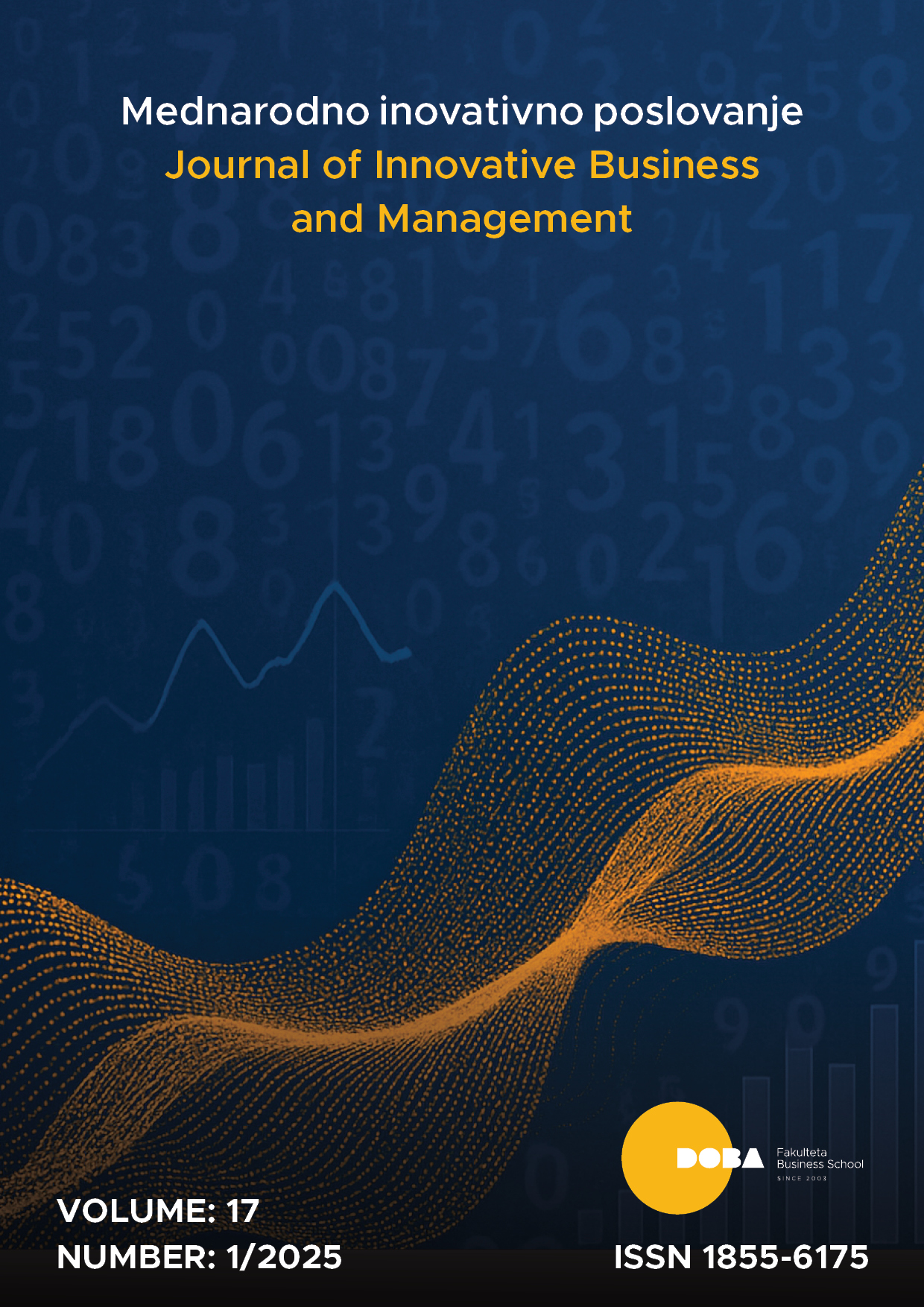Integrating ESG and AI in higher education: a conceptual framework for curriculum innovation
DOI:
https://doi.org/10.32015/JIBM.2025.17.1.3Keywords:
ESG education, higher education, sustainable finance, artificial intelligence in education, interdisciplinary learningAbstract
This paper examines the challenges and opportunities of integrating Environmental, Social and Governance (ESG) principles with artificial intelligence (AI) tools in higher education (HE), particularly in finance and business-related study programmes. Drawing on a structured review of recent academic literature and informed by insights from the Erasmus+ GenESG project, it identifies four key systemic gaps that hinder effective implementation: lack of standardised ESG frameworks, weak interdisciplinary integration, ethical uncertainties surrounding AI use, and low student engagement with sustainability topics.
The paper argues that addressing these challenges requires a holistic rethinking of curricula, combining ethical, digital, and sustainability literacies. Through an analysis of pedagogical approaches and institutional barriers, it offers recommendations for more coherent and future-oriented ESG teaching in higher education (HE), grounded in interdisciplinary, practice-based, and ethically aware strategies.
References
Edwards, R., and Usher, R. (2001). Lifelong learning: A postmodern condition of education? Adult Education Quarterly, 51(4), 273-287.
Glastra, F. J., Hake, B. J., and Schedler, P. E. (2004). Lifelong learning as transitional learning. Adult Education Quarterly, 54(4), 291-307.
Holmes, W., and Porayska-Pomsta, K. (2023). The ethics of artificial intelligence in education: Practices, challenges and debates. Routledge.
Jiang, Y., Li, X., and Luo, H. (2022). Quo vadis artificial intelligence? Discover Artificial Intelligence, 2(4).
Marginson, S. (2004). Competition and markets in higher education: A 'glonacal' analysis. Policy Futures in Education, 2(2), 175-244.
Mohiuddin, M., Hosseini, E., Faradonbeh, S. B., and Sabokro, M. (2022). Achieving human resource management sustainability in universities. International Journal of Environmental Research and Public Health, 19(2), 928.
Olssen, M., Codd, J., and O'Neill, A. (2004). Education policy: Globalization, citizenship and democracy. Sage.
Pawlik, J., Tomala, J., and Urbaniec, M. (2025). Comprehensive Gap and Needs Report. Erasmus+ Project GenESG – Sustainable Finance Microlearning with Educational Generative AI. Krakow University of Economics.
Schlegel, D., and Kraus, P. (2023). Skills and competencies for digital transformation - A critical analysis in the context of robotic process automation. International Journal of Organizational Analysis, 31(3), 804-822.
Smith, D. A., and Fox, E. C. (2019). Ethical decision-making needs for emerging community college leaders. New Directions for Community Colleges, 2019(185), 75-87.
Truong, Y., and Papagiannidis, S. (2022). Artificial intelligence as an enabler for innovation: A review and future research agenda. Technological Forecasting and Social Change, 183, 121852.
Turcan, R. V., and Reilly, J. E. (2020). Populism and higher education curriculum development: Problem-based learning as a mitigating response. Palgrave Macmillan.
Downloads
Published
Issue
Section
License
Copyright (c) 2025 Tina Vukasović, Liliya Terzieva, Elenita Velikova , Justyna Tomala, Michael Murg, Anita Maček

This work is licensed under a Creative Commons Attribution-NonCommercial 4.0 International License.
The authors retain rights under the Creative Commons Attribution-ShareAlike 4.0 International CC BY-SA 4.0. Authors assign copyright or license the publication rights in their articles, including abstracts, to MIP=JIBM. This enables us to ensure full copyright protection and to disseminate the article, and of course MIP=JIBM, to the widest possible readership in electronic format. Authors are themselves responsible for obtaining permission to reproduce copyright material from other sources.















